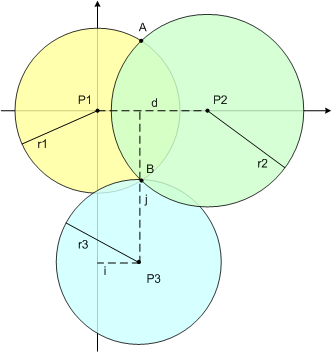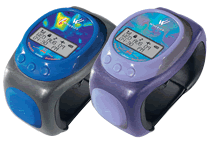Is it a good idea to use GPS tracking for children? Does a parent acquiesce to some substandard parenting ideal if they use child GPS? Do these tracking devices work effectively? What type of kid tracking device works best? Are there any easy, cheap tracking alternatives?
It is the hope of this short article to try and make answer some of these questions for the parent just beginning to think about using some type of GPS tracking with their children in an effort to keep them safe and secure in our increasingly dangerous world. There is a sea of information out there about different options for parents and their children, so getting a solid handle on some of the basics is important if we are to find our way to safe harbors. The last thing we want to do is spend lots of money on something that doesn’t work well. After reading this you will hopefully be a little better equipped to make good decisions about any potential purchases.
GPS: The Basics
As one famous song once started, “Let’s start at the very beginning / A very good place to start” and begin this discussion about GPS for children and talk about GPS itself. Most people have some level of familiarity with GPS because of the prolific dissemination of GPS navigation devices. Brands like Garmin, TomTom, and Magellan have popularized the use of GPS, but what exactly is GPS? How does it work? And what differentiates GPS navigation from GPS tracking?
GPS stands for Global Positioning System and is a constellation of over 20 satellites currently in orbit around the earth. Each of these satellites broadcasts a signal that contains information about the location of the satellite and the the time that the signal originated. These signals shower down from the heavens and are collected by specialized radio antennas. These GPS antennas then funnel these signals to a receiver which interprets the information from the signal. Once three signals have been received from satellites, the GPS is then able to discover its location through a mathematical principle called trilateration.
Trilateration is best described by the following picture:

Once you know your distance from three objects you can find out your position relative to all three objects. If you also know where these three objects are in the world then you can also know your exact position in the world as well.
A real life example might help clarify this principle. Let’s say that your child is in a ten by ten room. They are located somewhere in the room but neither you nor they know exactly where they are. In the center of each wall is a piece of rope that will be used to measure their distance from that wall. You come to find that the child is located 5 feet from all 4 walls. Where is your child?
If you the do the math you will find that your child can only be in one location, the exact center of the room. This is a lot like trilateration with GPS satellites and is the one way thing that all GPS devices have in common, irregardless of whether it is a child GPS tracker, a pet GPS tracker, a car GPS tracker, or a fleet GPS tracker.
GPS Trackers or GPS Loggers?
Now we should turn our attention to another important distinction in the world of GPS, that between GPS trackers and GPS loggers. As one might expect, a GPS tracker is something that has the capability of being tracked in real time. These might also be called real time GPS tracking devices. These work by collecting the location data using the process of trilateration as outlined above and then sending that data over a cell phone network where it can be stored for user access, which usually means for display on a website. Real time GPS trackers generally have a monthly subscription to cover the cost of using the cell phone network to transfer data.
A data logger is a GPS device that does what its name suggests, it logs the data that is calculates via trilateration. Almost all GPS navigation devices are data loggers, so are GPS tracking sticks and other types of covert GPS tracking devices. While these devices can be very useful for analyzing GPS information after the fact, they are terrible real time tracking devices because you actually have to have the device in order to view the information. What good does that do you if you want to find a missing child?
As a result, all child GPS devices are going to be real time GPS tracking devices. This is without exception. If someone is trying to sell you a data logger then you want to run out the door!
Types of Child GPS Devices
There are several types of tracking devices for children that you should take a look at before making your purchase. All of these devices do their tracking in real time.  Some options may be better for some parents than others depending on your own particular situation and needs. While some trackers will excel in certain situations they will also flounder in others. Finding the “perfect” child tracking device is not an easy task and you generally have to give up some quality in order to get another quality that you really want. The main type of child GPS include: GPS cell phones, GPS tracking devices, and GPS watches.
Child GPS Cell Phones
One of the easiest ways for parents to track their children is to use a cell phone. This makes child GPS tracking very easy for parents that already have their children using a cell phone for other reasons. There are some phones that are specifically designed for this kid tracking. These generally have very few buttons, and the buttons that they do have are more akin to speed dial buttons that regular phone buttons. They are fairly easy to use and allow for one touch communication between child and parent. We have written another article about these phones called Kids GPS Phone: A Brief Introduction.
The second way to use a cell phone to track your kids is to set up a tracking system yourself. Just get a GPS enabled cell phone and install some GPS tracking software on it. This can be a relatively cheap if you are already paying for a family plan that includes a data element since many cell phone tracking software packages are free.  All you have to do is install the software on your cell phone and you will have a real time tracking device for your use.
Pros:
- In some cases, it uses a device already used by the child – thus saving money on device purchase and service plan
- Very useful devices that allow you to call the phone if the child is somewhere they are not supposed to be
Cons:
- They are the first thing to get destroyed or discarded during an abduction, they are not easily concealed
- Cell phone can sometimes be more trouble than they are worth with text messaging, camera phones, and internet surfing
Child GPS Locators
Stand alone child GPS locators are on the rise as GPS technology is creating more powerful devices that fit into smaller and smaller dimensions. One great example of this is the Amber Alert GPS. At a stunningly small 1.77″ x 1.68″ x .78″ this device is among the smallest kid trackers on the market. It uses A-GPS for quick and energy efficient location finding. A one way voice monitoring systems allows parents to listen in on up to 30 minutes of conversation per month in case of an emergency. The device supports bread-crumbing which is great for helping you track down your child. The unit even has a handy SOS button that when pressed by your child will send you their location every 5 minutes until the system has been restored.
The device is easily concealed in a pocket or personal bag, making it less likely to be discarded by someone seeking to take your child. If the device doesn’t get taken then you can be sure that there is going to be a higher chance that you will recover them.
Right now, the Amber Alert GPS is being offered with a $100 discount. If this is an interesting option for you then I would recommend heading over to their website in order to find out more information about this GPS device and how it might help you and your family stay safe.
Pros:
- Small, light-weight GPS tracking devices are extremely easy to conceal
- Extremely accurate position information, especially when using A-GPS
Cons:
- Limited battery life means you need to stay on top of charging the device regularly
- Expensive – can cost $100s for the device and anywhere from $100 to $400 a year in service plan coverage
Child GPS Watches
A child GPS watch is the third and final option available for those seeking to find a way to track their children. In many ways, these are the ideal from of child GPS. What would be a better GPS tracking device than an inconspicuous child’s watch? Then throw in some cell phone functionality, like one button calling, and you have a power child safety device.
When you look at the current selection of GPS tracking watches for kids you are going to find that we are much closer to the ideal device described above than one might suspect. There are already a few models planned that do in fact incorporate real time GPS tracking technology with cell phone communication. Since most real time tracking devices already utilize the ever expanding cell phone network, this marriage was a perfect union for watch manufacturers. Now that they have the concept they just need to execute it in a way that works for parents and for kids.
 However, many of the current child GPS watches that actually do exist are nothing like one would hope. Their GPS works almost exclusively outdoors, making them woefully inadequate as a child safety device. They also do not feature A-GPS, voice communication, and they are bulky and extremely ugly – just take a look at the watch to the right!
However, many of the current child GPS watches that actually do exist are nothing like one would hope. Their GPS works almost exclusively outdoors, making them woefully inadequate as a child safety device. They also do not feature A-GPS, voice communication, and they are bulky and extremely ugly – just take a look at the watch to the right!
Pros:
- Watch can easily be seen as a normal watch and will not be removed by an attacker
- Easy dual use device – it tells time and tracks your child
- Children can easily be convinced to use the watch through the power of fun
Cons:
- Bulky design makes them a pain to wear and very suspicious to would-be abductors
- Yet to reach its full potential – many of the most promising tracking watches are still in the design stage and have yet to be released for sale
Where Do We Go From Here?
As you can see, each type of child GPS is going to have its own set of strengths and weaknesses. As the market stands today, there is no outright winner in regards to what you should equip your child with, but hopefully this guide has given you some good handles to go out and find the right type of tracker for your specific needs. If you have any questions or comments please feel free to leave them below in the comments section and one of our GPS tracking editors will do their best to answer it for you.



